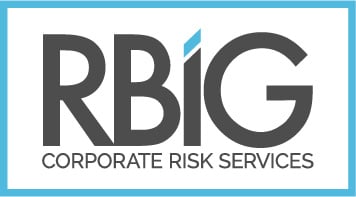Addressing Environmental Social & Governance (ESG) issues is going to become increasingly important to SMEs. Now is the time prepare says RBIG's commercial director, Stephen Hodgson.
As the COP26 summit opened last month, I wrote about how insurers are placing ESG centre stage.
Underwriters have already signalled they will insulate themselves from fossil fuel risks. They're also taking steps to make sure their own houses are in order as they seek to achieve Net Zero.
They not alone. Investors are looking at corporates' ESG criteria when determining their investment decisions. A low ESG rating could indicate a higher financial risk.

Major PLCs are looking at their environmental footprints, alongside wider issues.
These include the social impact of their business, embracing concerns such as working hours and practices and commitment to supporting the communities they touch.
On governance they might look at things like transparency, conflicts of interest and regulatory compliance.
Small business, big issues
For small businesses, resource constraints may mean it's harder to calculate and address ESG issues. It takes time and costs money, although there are actions that can be taken relatively easily, more of which later
But nonetheless they ignore ESG at their peril. That's not just because it might impact the cost and availability of business insurance; as a noted in my last blog, ESG will play a growing role in risk assessments.
There are other reasons. Sound commercial reasons.
Recruitment is one. As commercial insurers run the rule over a company's ESG performance, so may the talent you wish to secure. A survey published earlier this month by recruitment agency TheTalentPeople found that 33% of young people reported that climate change has affected how they’ll search for opportunities.
Of those 68% said they’d "like to work for an employer that is doing something positive for the future of our planet."
The research showed communication is also key. 76% said that employers should better explain their commitments to the environment.

"The ask here is clear. In this competitive jobs market, entry-level job hunters often have access to a wide range of options and the majority want to know what employers are doing for the good of the planet," commented TheTalentPeople's CEO, David Allison.
"Organisations of all types and sizes must seize this opportunity in the battle for their future workforce. Shout about all the positive steps your organisation is taking."
Your customers will also be likely to want to hear what you have to say. Research by professional services firm, Deloitte found that nearly a third of consumers had stopped buying particular brands on environmental and sustainability grounds.
Sustainable message
Of course you need something to shout about. People are increasingly alert to so-called "greenwashing" in which companies extoll environmental virtues which they don't really possess.
For your message to be sustainable, so must your policies and practice.
So where, as a resource constrained SME, should you start?
Well, as with big business so will smaller enterprises need commit to Net Zero targets.

To do so you'll need calculate your current Corporate Carbon Footprint (CCF). This is not as complicated as it might sound. The Federation of Small Businesses has published this handy guide which takes you through the steps.
Think of it as an accounting exercise with a balance sheet comprising direct emissions from your company's activities - such as company vehicles - and indirect emissions created through the purchase of energy.
The gold standard would also include indirect emissions caused by your business activities. This is trickier to calculate and would include things like the impact of staff commuting.
Having calculated your CCF it should be easier to see where you need to take action in pursuit of Net Zero.
Setting science-based targets
To be effective - and credible - the actions you choose to take need be science-based. Luckily you don't need higher degrees in Sustainability or Environment Studies to determine these.
The Science Based Targets Initiative (SBTi) offers extensive resources to enable businesses of all sizes to develop and commit to their own target which the SBTi will endorse.
That's quite a tick box, one that should really help communicate your environmental commitment to existing and potential employees and customers as well as other stakeholders.
Insurers, which as we have already noted will increasingly monitor environmental impact within wider risk assessment, are also likely to look on favourably.
As I wrote previously, whilst insurers will be adjusting their underwriting criteria in line with ESG factors, they will also be keen to ensure that businesses can meet them.
Of course you will also be able to rely on a proactive and professional commercial insurance broker such as RBIG. We'll be here to advise on the ESG-inspired changes business insurers are instituting, what they mean to your business and what you need do in response.
If you want to discuss how ESG issues may impact your business insurance, you can email Stephen Hodgson here or call him on 0161 304 5004.





